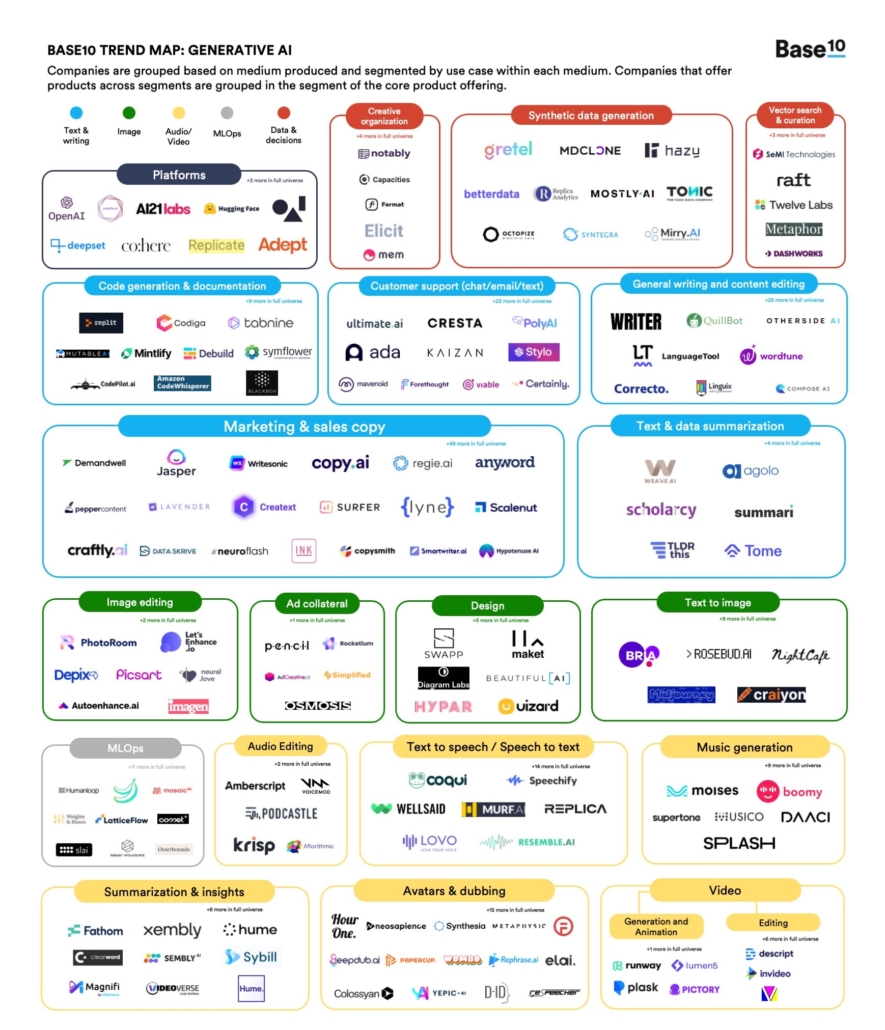ChatGPT and SEO: is it a revolution
or Much Ado About Nothing?
ChatGPT has been creating a buzz on all fronts for the past few months, with many predicting a revolution in the profession and practice of marketing, especially as regards SEO. If you haven’t tried ChatGPT yet, or if you want to see some practical uses, please do watch this very informative video about how ChatGPT works, including prompts and very concrete examples of marketing applications.
While this trend was previously unanimously heralded as a revolution, opinions with a more questioning or restrained slant are beginning to be heard.
It is certainly true that we are currently seeing much speculation combined with a great deal of hype. The web giants are jumping onto the bandwagon, and a fight for the best seats is breaking out between different search engines.
Many questions arise, and we are all still in wait-and-see mode, to some extent. We have tried to forecast how search habits might change in order to understand what we might expect.
How will internet users search for information?
The search habits of internet users will certainly change, and no doubt diversify. We might well move from the classic “search engines” to “answer engines”. Google’s question box, usually seen in the “People also ask” section, is likely to become obsolete in its current form. Will Bing manage to seize market share by being ahead of the game? Could other players enter the fray? Particular attention should be paid to social networks, which are used as search engines by many internet users, especially the younger generation.
How will AI-generated content be incorporated?
ChatGPT, and AI more generally, is set to massively increase content production, including the creation of poor content, fabricated stories, and outright falsehoods. A critical question for the future is how will the truthfulness and/or relevance of content be managed? Will it be “anything goes”, as it is on social media currently? Will some form of control be implemented? Will new regulations emerge? Or will internet users have to sift through content and decide its quality for themselves? Such a glut of content will make SEO ranking increasingly complex, and the competition for top spots will become fiercer. At present, no clear direction has been provided, and Google has merely said on its blog that it will not penalize AI-generated content as long as it is deemed helpful.
How will Google’s positioning change?
Google is feeling the heat for the first time and is now playing catch-up. This is a real challenge for the leader in online “searches”, which could possibly lose its monopoly among internet users.
The issue of optimizing organic search rankings to meet the expectations of algorithms used by other engines, which might not follow the same rules, is certain to arise if this possibility becomes reality. The concept of separate organic ranking optimization for these “answer engines” could also emerge, unless they open up to the internet, as some are already doing. Optimizing for other channels could also become crucial, as on certain key social networks, in the same vein as Reddit, an “old” social network founded in 2005 that is increasingly gaining traction.
How will vertical AI-based tools develop?
ChatGPT is just one link in the AI chain. The real “revolutionary” aspect that is likely to have the greatest impact lies in the thousands of firms that have recently emerged to build vertical tools based on all these new technologies.
Any of them is potentially a future tool that might bring changes to our working habits and methods, or even go further by providing a means to overcome the shortcomings of our current technologies.
Here are a few examples:
Perplexity.ai: a search engine that combines Google Search API and GPT-3.
While ChatGPT isn’t connected to the internet and so cannot cite sources, or makes them up, Perplexity is able to answer questions by including real and verifiable sources to help you drill down deeper into your search…
Neeva: a subscription-based search engine that works on the same principle as Perplexity but without Google ads.
Bearly.ai: a utility that offers summaries of web pages, PDF documents, Amazon product reviews, YouTube video transcriptions, and more.
Notion AI: the Notion note-taking solution now incorporates AI to draft to-do lists, job descriptions, social media posts, articles, emails, and so on.
And the list of available tools is growing daily, including utilities to transcribe video meetings, draft business emails, re-write product descriptions, generate code snippets or whole computer programs, and much more besides.
To see even more, the infographic below shows companies offering an AI-based service of some kind. You can also check out the “Futurpedia” online directory which already lists over 1,000 tools!

A great deal is happening right now. We hear many stories. One minute you’ll hear one thing, the next the complete opposite. From highly enthusiastic influencers to skeptics, it’s hard to assess what the outcomes of all these developments will be. At this point, in terms of SEO, there’s no indication of a revolutionary upheaval. Adjustments might prove necessary, but they won’t be needed overnight. We can only observe and take the various viewpoints onboard, while continuing to produce good, readable, high-quality content for readers. Pending concrete new announcements, we recommend an interesting interview with Yann LeCun of Meta, published by ZNet, or this presentation by professor Narayanan of Princeton.

